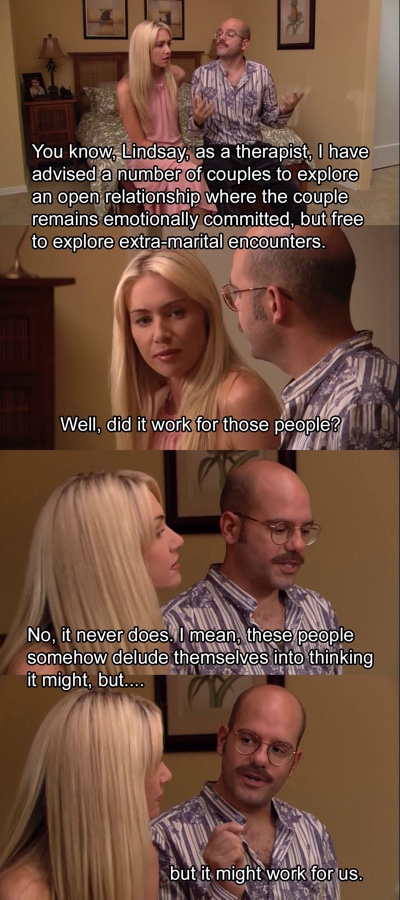Matthew Panzarino wrote something that historians will reference in thinkpieces on Medium 40 years from now. From The Apple Watch Is Time, Saved:
And that is the target market of the Apple Watch. Not “rich people” (though there’s a model specially for them), not “tech geeks” and not “Apple fanatics.” It’s people who want more time, and that is a very large target.
This, for some reason, is the thing that Apple has had a hard time articulating. This is the primary use case of the Watch. It’s not just that it’s a “notification center”; it’s that it allows you to act without any additional distraction.
The idea that some new technology will give us more time to do “other stuff” is as old as technological innovation itself. By now we should have learned that no, actually, this time isn’t different. But we’ll never learn. We approach every new technology with starry eyes and hopes and dreams of a life less time-consuming. When I read something like this, I always think about this classic scene from Arrested Development:

In just one of several historical examples of the time-saving delusion, John Maynard Keynes published an essay in 1930 called Economic Possibilities for our Grandchildren [PDF], in which he predicted that technological innovation will save people so much time that they won’t know what to do with themselves:
Thus for the first time since his creation man will be faced with his real, his permanent problem—how to use his freedom from pressing economic cares, how to occupy the leisure, which science and compound interest will have won for him, to live wisely and agreeably and well.
That, alas, has not happened. We are busier than ever these days. Instead of giving us more time, our technologies have instead given us more ways to be connected, to stay in touch with work, to never have to leave the office. I don’t see how one can argue that the Apple Watch will reverse this trend.
What the Apple Watch will do instead, I believe, is to accelerate a different trend, described by Douglas Rushkoff in Present Shock:
Our society has reoriented itself to the present moment. Everything is live, real time, and always-on. It’s not a mere speeding up, however much our lifestyles and technologies have accelerated the rate at which we attempt to do things. It’s more of a diminishment of anything that isn’t happening right now—and the onslaught of everything that supposedly is.
I’m not saying the Apple Watch won’t be wildly successful, or that I don’t want one — I definitely want one. I just don’t think we should fool ourselves into thinking it will somehow give us more time because we might look at our phones less. If history teaches us anything, it’s that we’ll find a way for the watch to fill up our “saved” time in other ways — and then some. And in doing so we’ll continue on the path Kevin Kelly lays out in his excellent book What Technology Wants:
Our lives today are strung with a profound and constant tension between the virtues of more technology and the personal necessity of less: Should I get my kid this gadget? Do I have time to master this labor-saving device? And more deeply: What is this technology taking over my life, anyway? What is this global force that elicits both our love and repulsion? How should we approach it? Can we resist it, or is each and every new technology inevitable? Does the relentless avalanche of new things deserve my support or my skepticism—and will my choice even matter?
That said, this post is only about the first version of the Apple Watch. The next watch is a different story. The next watch might be the one that finally saves us time. Just wait. You’ll see.